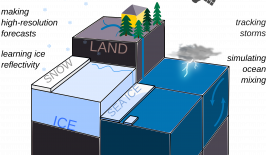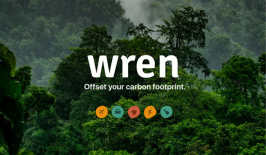When it comes to fighting climate change, reducing CO2 emissions is crucial. Within the European Union, it has been decided that industry is allowed to emit a certain amount of emissions. This allowance is divided up via certificates that companies have to purchase. At present, one ton of CO2 costs around 30 euros. Demand determines the price: the fewer certificates there are, the higher the price of a ton increases and the more expensive CO2 emissions end up being for industry.
A startup from Germany has now entered this complex world of emissions trading. ForTomorrow buys CO2 certificates and collects them in an account. This means that they are no longer available to industry. The startup hopes to make the certificates so scarce that companies will no longer receive enough CO2 certificates to offset their emissions and will be forced to produce less carbon dioxide and implement appropriate measures. In the long term, ForTomorrow wants to ensure that industry produces fewer emissions. The founder Ruth von Heusinger herself worked for various energy companies and in emissions trading before setting up ForTomorrow.
The purchase of emission certificates is financed by ForTomorrow users. If you pay a one-time fee or take out a climate subscription for yourself as an individual or for the whole family, the startup offsets the CO2 emissions for you. Only half of the carbon offsetting is carried out through the purchase of certificates, however. ForTomorrow invests the other half in planting trees. Here, too, the young company is taking a path that is rather unusual in the industry: the trees are planted in Germany. Because forests are protected in Germany and illegal logging is not allowed, ForTomorrow sees a greater chance than in many other regions of the world that the tree will have many years to grow. The reforestation takes place in collaboration with the “Schutzgemeinschaft deutscher Wald”, an organisation that works to protect German forests, and only on state-owned land, so that the newly planted forest can be accessed and enjoyed by everyone.
The study The Dynamics of Social Tipping Points for Stabilizing the Earth’s Climate by 2050, published in February 2020, gives hope that ForTomorrow’s idea has a good chance of working in the long term. An international team of scientists at the Potsdam Institute for Climate Impact Research has identified several social tipping elements that could result in a rapid global transition to a carbon-neutral world. These tipping elements could be triggered by specific and targeted interventions. One example is “divestment,” or pulling money out of polluting industries. In this way, the market can be turned around even with only a relatively small number of investors. ForTomorrow can also be viewed in that context. But for the startup’s approach to be truly effective, they will have to be able to stockpile a very large number of certificates. It remains to be seen whether the plan will work out.
This is a translation of an original article that first appeared on RESET’s German-languages site.





